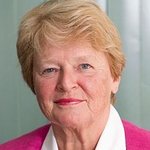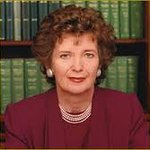Concluding their visit to Thailand (12–13 December) and Myanmar (14–18 December), The Elders today called on the warring parties in Myanmar’s 60 year-long conflicts to seize the present opportunity to end the fighting and start to build a new and inclusive federal state.
The Elders’ delegation was led by Gro Harlem Brundtland (former Prime Minister of Norway and Deputy Chair of The Elders), and included Martti Ahtisaari (former President of Finland), Lakhdar Brahimi (former Algerian Foreign Minister and UN envoy) and Hina Jilani (a Supreme Court advocate and human rights defender from Pakistan).
The one-week visit to the region marked a continuation of The Elders’ efforts to encourage progress towards a democratic and just society that reflects the full diversity and talents of the Myanmar people. This was the Elders’ third visit to Myanmar in the past 15 months.
The Elders first travelled to Chiang Mai, Thailand, where they met representatives of different ethnic organisations and civil society, to learn more about current concerns. They expressed support for efforts to enhance the role of women in peace-building and national political life.
Commenting on renewed efforts to conclude a National Ceasefire Accord, Martti Ahtisaari said: “Stopping the fighting once and for all must be the first step. We heard from all sides during our visit that the will is there; but those wishes must now be translated into action. A reliable monitoring system and other trust-building measures will help build a lasting peace from the ground upwards.”
Lakhdar Brahimi added: “During our visit, we were concerned to hear some disturbing reports of intolerance and discrimination. Equality and tolerance are the hallmarks of a stable society, as I know Myanmar to be. With their proud history and rich variety of cultures, the peoples of this remarkable country could one day present a shining example to the world of harmonious co-existence.”
In Nay Pyi Taw, Myanmar’s capital, the Elders once again held substantive discussions with President U Thein Sein, Senior General Min Aung Hlaing (Commander-in-Chief of the Armed Services) and Union Minister U Aung Min, who leads the peace process. During these meetings, they explored progress made in moving towards a more democratic society and considered the many challenges that still lie ahead.
The Elders also met U Tin Aye, Chairman of the Union Election Commission, to learn about preparations for national elections in a year’s time. They were encouraged by the prospect of genuinely free and fair elections in 2015 and urged the UEC to permit local and foreign election observers to enjoy freedom to play their essential role during next year’s polls.
In Yangon, the Elders met Daw Aung San Suu Kyi, Chair of the National League for Democracy (NLD) and leader of the parliamentary opposition. They spoke with her about the benefits of national dialogue among all the key actors, in different settings, and about the importance of national reconciliation.
Commenting on the political transition, now in its fourth year, Gro Harlem Brundtland said: “The changes in Myanmar have been remarkable. At the same time, it is clear that inequity is growing and the poorest in society have yet to enjoy the benefits of the economic opening-up. We would encourage on-going constructive political dialogue for the benefit of all in society.”
Hina Jilani added: "I know from my own country, the importance of political dialogue among all parties, conducted in a spirit of openness. In Myanmar, the military has played a key role over many years in preserving national sovereignty.
“But, from what I have heard on this, my first visit to the country, the generals are also wise enough to realise that they must give way to civilian rule, and further their efforts to move the country towards a stable and participatory democracy.”
Following a first visit in September 2013 alongside their fellow Elder Jimmy Carter (former US President), Martti Ahtisaari and Gro Harlem Brundtland returned to the country for the Elders’ second visit in March 2014.






